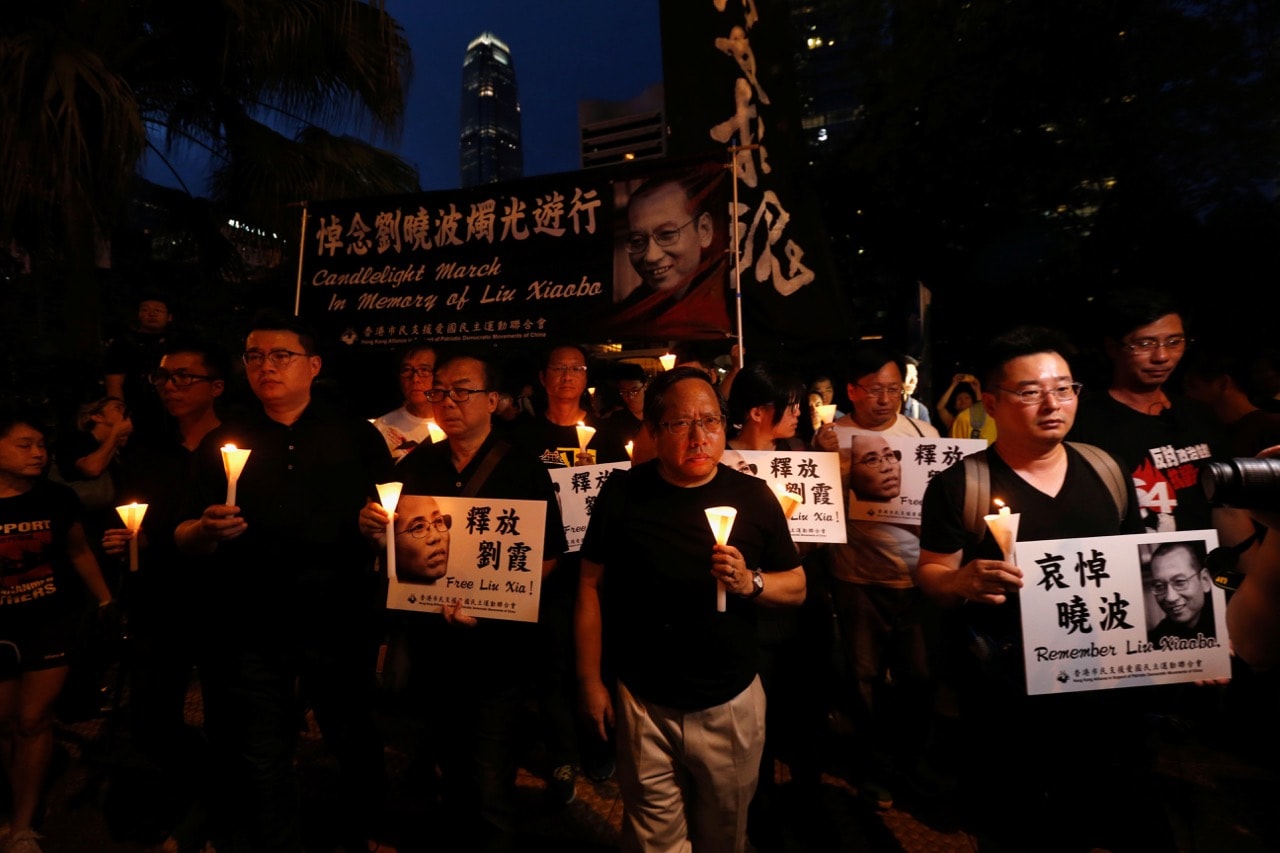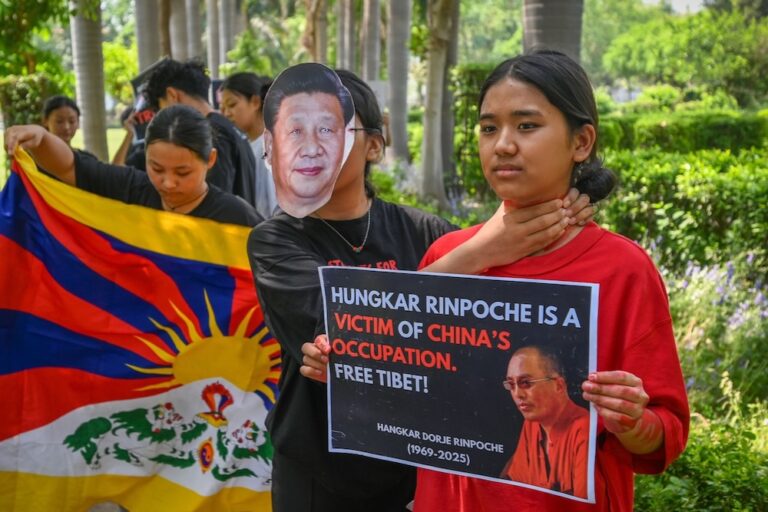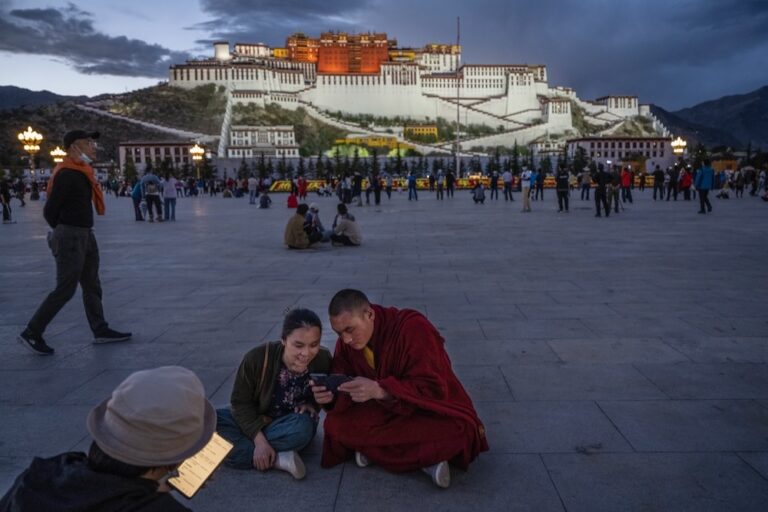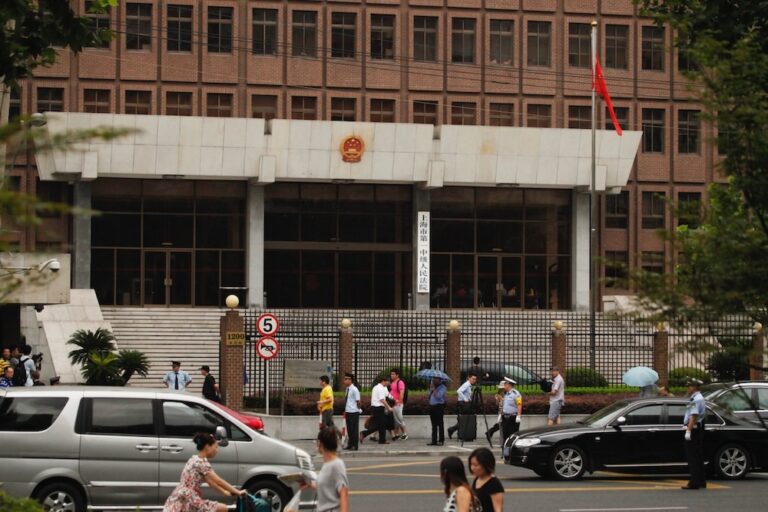After his death, not only was Liu's name censored on social media platforms, even phrases containing the word "thunder" - a homophone for "tears" in Chinese - and the candle emoji were removed by censors.
Liu Xiaobo, China’s most renowned political prisoner, died on 13 July 2017 – less than three weeks after he was diagnosed with late stage liver cancer.
News of his death quickly inspired writers, activists, and human rights advocates from across the world to honor the legacy of Liu and his unfinished work of promoting democratic reforms in China.
Liu was a former professor of literature at Beijing Normal University. He was jailed for 21 months because of his participation in the 1989 Tiananmen Square pro-democracy protests. As co-author of the Charter 08 manifesto calling for reforms in China, he was arrested in 2008 for ”inciting subversion of state power” and sentenced to 11 years in prison. In 2010 he became the first Chinese recipient of the Nobel peace prize.
According to Human Rights Watch, “the last time a Nobel Peace laureate died in state custody was in 1938, when pacifist Carl von Ossietzky died of tuberculosis under guard in a hospital in Nazi Germany”.
Reporters Without Borders (RSF) accused the Chinese government of failing to provide adequate medical care to Liu:
“As well as arbitrary imprisonment, the Chinese leaders and their accomplices are guilty of murder by lack of care,” said RSF secretary-general Christophe Deloire.
The Hong Kong Journalists Association noted that Liu was imprisoned for expressing his views and that his family was also punished by authorities.
“The remarks he made would not have become the justification for criminal conviction in civilized and free societies. Furthermore, his family has been victimized, being deprived of the right to freedom of speech and other civic rights,” the group stated.
Steven Butler of the Committee to Protect Journalists urged Chinese President Xi Jinping to atone for his government’s harsh treatment of Liu by releasing 37 journalists who are currently languishing in jails because they simply dared to exercise their right to free expression.
Chinese cartoonist @badiucao tribute to #LiuXiaobo, – Hosier Lane, Melbourne pic.twitter.com/lfhN58Qftq
— CRNI (@CRNetInt) July 15, 2017
Participants stream out of Chater Gardens at a candlelight vigil for Nobel laureate Liu Xiaobo in Hong Kong pic.twitter.com/Dpa0gydTSL
— Hong Kong Free Press (@HongKongFP) July 15, 2017
PEN International issued this moving tribute to Liu who was also a former president of the Independent Chinese PEN Centre.
“It is a huge sadness to all of us who knew or were influenced by Liu Xiaobo – his resilient activism, his commitment to justice, his optimism and peaceful heart – that he will never have the opportunity to be recognised in person for all that he has done in the service of others…just as he was remembered whilst locked behind bars, he will be remembered by us forever”.
A line of plainclothes state security officers standing right across from #LiuXiaobo‘s family at funeral, some tailed journos yesterday pic.twitter.com/GdlD1yKC5v
— Emily Feng (@EmilyZFeng) July 15, 2017
According to some supporters of Liu, his ashes were thrown at sea by authorities to prevent people from flocking to his grave.
Social media censorship
After his death, Liu’s name was censored on social media platforms in China. In addition, keywords perceived to be honoring the memory of Liu were also filtered. Even the candle emoji was blocked, probably to stop internet users from mourning the death of Liu. Phrases containing the words “thunder” (a homophone for “tears” in Chinese), “RIP”, and “Changchun” (Liu’s hometown) were also removed by censors.
Chinese censorship of Liu’s death has gone crazy tonight. Even “RIP” is not allowed to be posted on Sina Weibo. pic.twitter.com/WarKkLVQ0o
— Adam_Wu (@Adam_WuTong) July 13, 2017
#FreeLiuXia
Meanwhile, various groups are calling for the immediate release of Liu’s wife, Liu Xia, a poet and photographer who was placed under house arrest after her husband was detained in 2008. Some pictures released by Chinese authorities showed a frail-looking Liu Xia when she visited her husband in the hospital last June.
The circumstances around Liu Xiaobo’s death are a tragic illustration of China’s poor treatment of its prisoners, its massive censorship, and other repressive tools the government uses to undermine civil liberties and free expression. They also highlight both the need for – and the vast network of support for – peaceful democratic reforms in the country.
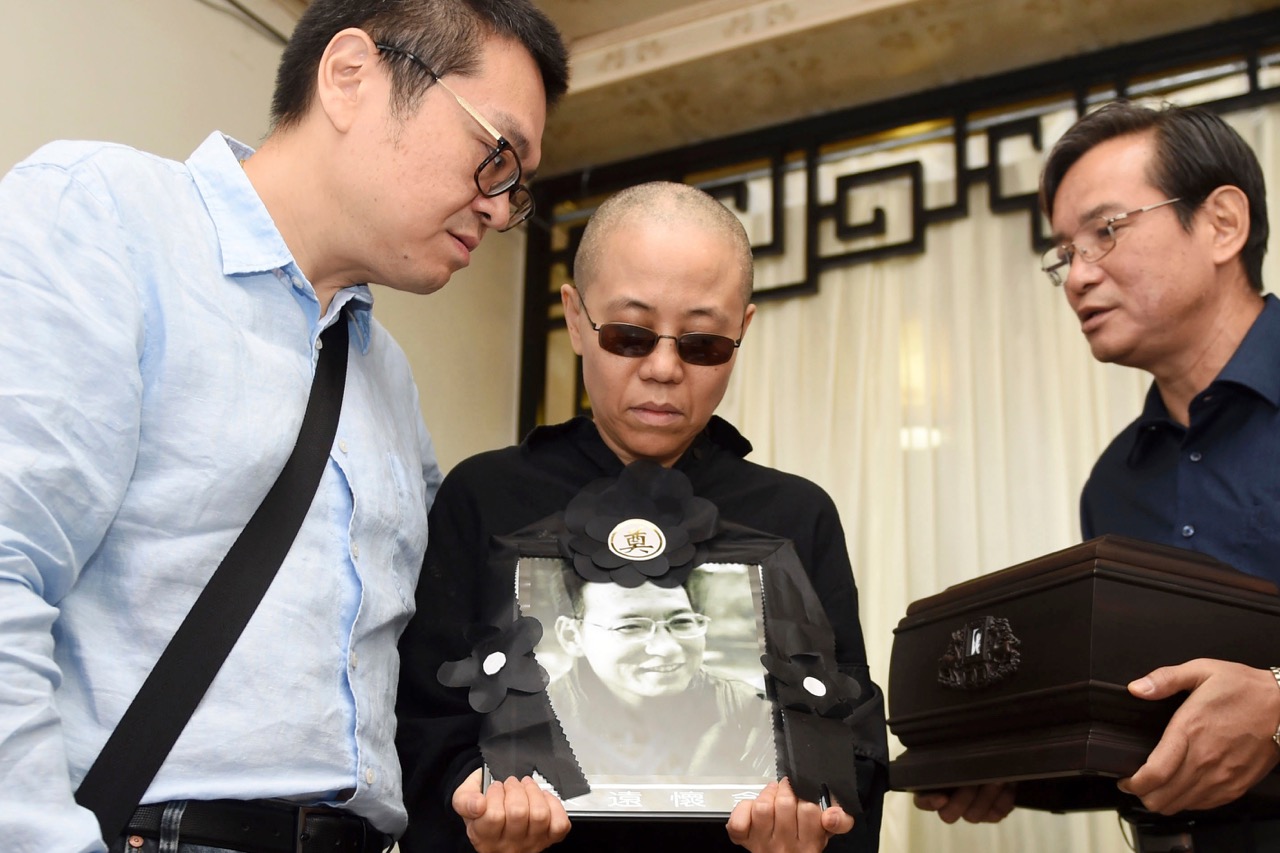
Liu Xia, center, holds a portrait of him during his funeral in Shenyang in northeastern China’s, 15 July 2017. The photo shows, from left to right, Liu Hui, younger brother of Liu Xia, Liu Xia and Liu Xiaoxuan, younger brother of Liu Xiaobo holding his cremated remainsShenyang Municipal Information Office via AP, File
